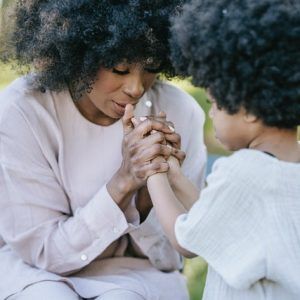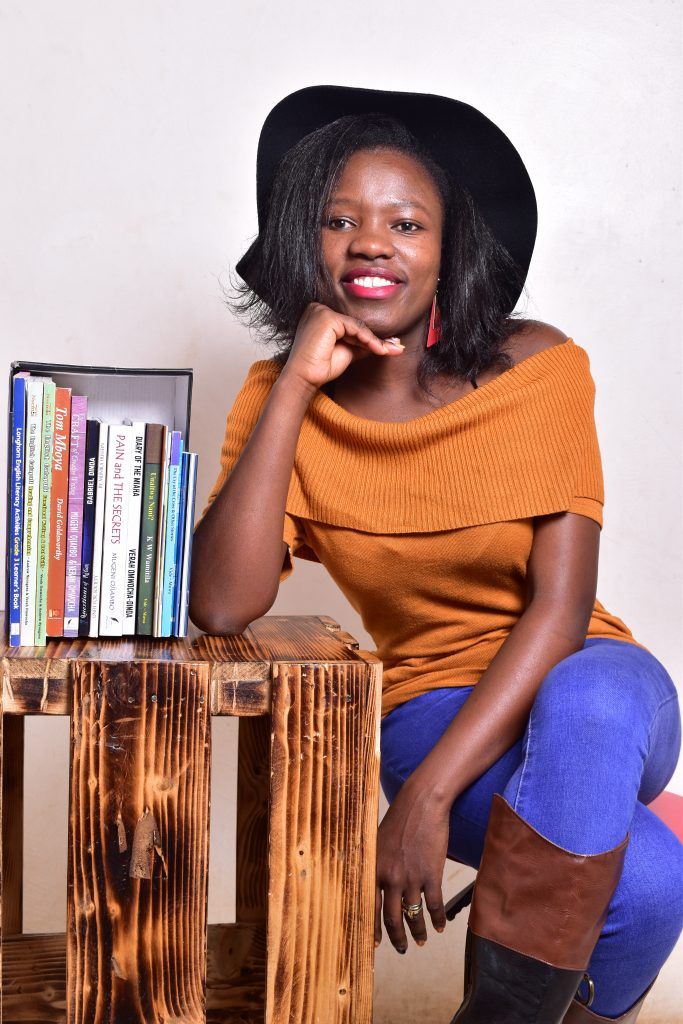…I daresay, paraphrasing Yvonne Owuor in her novel ‘Dust’ where she writes: The body of a human being cannot live without kindness. When it meets hatred, it stops trusting in life”.
While trudging through life; making sense of it and doing the things it requires of us, I stopped trusting life. I didn't notice it, or like we often say, I didn't see it coming. Here’s a short story on how that happened;
One night in October 2021, I fell sick. My body was burning up from the inside I could nearly see the flames. But then it also felt like somebody had poured ice in my stomach. I couldn’t sleep. I couldn’t get up. I couldn’t breathe properly. I couldn't even put on my own clothes, my husband had to dress me so we’d go to the hospital. Since the world was still in the thick of Covid-ing, I suspected I had contracted the virus. At the hospital, I got tested for this and that, actually, for everything testable in light of my symptoms.
Everything turned out negative so I was advised to go back home and if I got worse, I'd go back for more tests. I was never ‘okay’ after that. I lay in bed nursing the I- don’t- know- what for days. The physical pain peeled off on its own by the second day. But I still couldn’t get up. I didn’t see a reason to. Days turned into months; I still didn’t feel ‘okay’. Being alive no longer made sense. What really was the point to anything? I wondered. Yes, I got up from the bed, went to the sitting room, showered, ate, took care of my baby – but all these things, these mundane and ‘pointless’ things I did mechanically. Life, and all its components annoyed me. When I couldn’t read at all (not to mention write) – I concluded that that was the end of me. Surely, there was no way I could hate reading!
I watched day become night and night give birth to day. I waited. I dared life to do what it wanted to do. I didn't have the strength to fight for myself or even fight for survival. I was just like, "I'm going to sit here and see what happens". I was curious to see what would become of me. I wasn’t going to cry, I refused to cry when I felt the bank of tears fill up. I refused to be 'weak'. What was the point of crying anyway?
I tried therapy, but c’mon, I was not even working and besides, the therapist asked annoying questions. I thought ‘how could you understand?’. Now I think, for everything that is worth living for, therapy shouldn't be so expensive. I didn’t go after the second session. Then I thought, ‘maybe a vacation could spark the light. My friends and I went to Diani. But it was really just a distraction. One early morning, while at Diani, I couldn’t breathe. So I took my baby and went to the beach. I watched the morning waves and fantasised how it would be such a nice way to die – rocked by the water.
I didn’t want to die; I just didn’t want to live like that. I couldn’t live without hope. Living, the minimum requirement of breathing felt like such a burden I was too frail to carry.
When we came back to Nairobi, I packed up and left for the village – to my in-laws at first and then to my parents’ –, together with my baby. Progressively, I started feeling like myself again and after two months in the village, I could read and write again. I could laugh again, really laugh. I could function again.
My relationships?
My relationship with myself suffered the most. Doubting your existence is truly a sad thing. Giving up on yourself, even worse. I tore down the first vision board I'd ever created and more than anything, felt disappointed in myself. I distanced myself from the world and people – quit social media altogether and disappeared into my little sad world.
I couldn’t bring myself to talk to God about it. I felt like the Big Guy should have at least given me a heads up or some explanation. I mean, what had I done to deserve that? Okay, maybe I had done some bad things but the ‘punishment’ wasn’t commensurate. Ha-ha.
I never went to church, I hated the very idea, struggled, nay, fought with God. But my husband, being the ninja he is, asked if I would love to go to church nearly every Sunday morning. In a very soft intended-not-to-be annoying voice. But did it annoy me? Absolutely. I think when you're mad at someone, even their breathing annoys you. My husband's questions annoyed me. How dare he talk to me? Ask me what I’d love to eat? He represented hope, and I didn’t want to believe it existed.
And I think I might have raised my voice at him; he never raised his. He treaded so carefully around me and one time he confessed that he didn't know if I wanted him to stay or go away; the answer is both. I wanted him to stay but when he did, I wanted him to leave me the hell alone. But he showed me the type of kindness I didn’t know existed. He allowed me to grieve my lost hope. Took care of our daughter more just so I didn’t have to do what he could.
Oh, I'm so sorry Gabs, I really am. And I’m so very grateful, I really am.
I consciously tried to smile more and sometimes play with my daughter, and somehow I found a little strength for her. Although sometimes I felt angry that now I had a dependant who needed me – ah, the idea of being needed offended me because I didn’t even need me for me, you know?
Now…
When people say it's okay not to be okay, it sounds "okay" when you're actually okay. But when you're not, I wondered if I could have answered, "I'm not okay, I'm collapsing, life is choking the life out of me", because, that's close to what I felt – but what I felt, what I went through, I do not have words for in any of the languages I speak.
Now I wonder if there's something I could have done to prevent the crash (as I sometimes refer to that period of my life); if I could have done something to take better care of myself. If people checking up on me (and my people did) could have helped. Though I also didn’t like 'being checked up on'. I sometimes watched the phone (the few times it rang), cry itself to silence. And here’s the thing, you don’t call people, they don’t call you. So I was glad that not many checked up on me because I didn’t check up on anyone – so consumed in my own grief. Talking, engaging people, being nice all required energy I had run out of.
Four people knew how much I was struggling: my husband, of course; my very close friend, a peer; a priest; and a much older someone-who-cares-for-me so much and who I tried to push away but she never gave up on me. More than what they said to me, I think they painted the walls of heaven with prayers for me. On my own, perhaps I would not have made it out alive.
Are those the only people I trusted enough? Well, not exactly. Besides, I didn't even want to talk about it. Talking about it meant hoping and fighting for myself. It meant listening to "I'm praying for you", “hang in there"; words which I hated then, and which I swear by now.
Anything we can collectively do?
The countries that are said to be happy have invested in people's well-being because the things we fight for, the things we wish for as a country, can only be achieved if we care about people's well-being. People who are intrinsically happy and content contribute in every way to the growth of the economy. Think about it, in those months I didn't work, I didn't directly contribute to the country’s GDP. I took more than I gave.
It got me wondering how, as a country, deeply sinking under the pandemic of mental illness, we do not understand or acknowledge it. It's so deep, so personal, so dark. And perhaps it's because of that that, how, whenever someone dies by suicide we say, “check oo your friends” Is that really all we can or should do? What should we collectively do? Something more sustainable?
We can fight for better healthcare. We can demand the allocation of resources toward mental health practitioners. We can keep fighting for policies that will see mental well-being treated just like physical well-being. As we draw closer to the electioneering period, we can demand that the next regime prioritises mental wellness. We can stop the stigma. We can talk to each other. Together, we can do so much more if we demand and vote for better leaders and not tribal bigwigs.
***
In your darkest, it's easy to assume that no one has ever been there. Easy to think you can never be 'yourself' again. It's easy to see how you'll never have the strength to keep going.
You see how a ‘lifeache’, unlike just a part of your body like your heart, aches every part of you – the very chore. It threatens to squeeze your bones, up to the last strand of an eyelash. It attacks you from the inside, from the engine of your body. It weakens you, makes you feel so tiny in a big big world. It's not something you can explain to anyone.
Even now, as I try to listen to myself more, to find my footing again – a job, especially, I’m a much kinder, understanding human. I do not treat that period as time lost. I do not feel the need to recover it. I just feel more content, more grateful, happier. I’ve come to the acceptance that life is going to crush you in some way. And no one or nothing prepares you for it. And to be okay with it; tell yourself to keep going, especially in the thick of the darkest cloud. It's going to refine you, walk you in the fire, shape you, mould you. And, you can and will get through that hole. Perhaps, maybe that's what we're all here for. Allow me to annoy you by reminding you to hang in there. You belong to life and life belongs to you, too.
Also Read: Embracing Vulnerability: What You Cannot Reveal, You Cannot Heal





